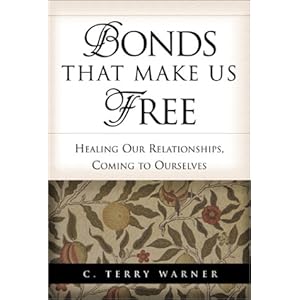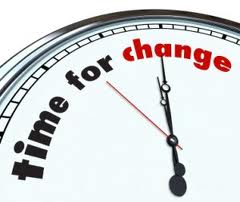Lynn G. Robbins of the Quorum of the Seventy made some remarks in conference that initially intrigued me and since have really stuck with me. He talked about being and doing. It is about who you are as a person versus your behavior. He pointed out that these two things are different. That what you do isn't as important as who you are. Or more directly what you do isn't necessarily representative of who you are. He suggests that our emphasis be put on becoming more like the Savior and that will lead to actions that are indeed more like him. Our behavior will change to represent who we are as we become a better more Christ-like person.
We have often been encouraged to do what we are asked of the Lord willingly. In essence Elder Robbins is telling us to directly work on and change our inner selves and our outer self will change along with us to reflect who we really are.
It reminded me of times in my life where I had known the right thing to do but didn't want to do it. I even consciously knew it was right and knew I should want to do it, but alas I didn't really want to do it. Ultimately my way of handling that conflict was that I wanted to want to do the right thing but I wasn't at that point yet. Over time my wanting to want to be better helped prepare me to be the person inside that would lead to the actions I knew were right but did not yet do. When our character and our actions match, peace and happiness are much more achievable!
Elder Robbins points out we make lists of things to do, but not lists of things to be. He explains that we can check off things on the to do list when they are done, but we can't check off things to be, because they continue and don't end. Consequently being is a lifetime commitment rather than doing, which is a time frame commitment. Interestingly we complain about some commitments required or encouraged by the church (i.e. the time it takes to move a neighbor, the time to prepare for an activity or a lesson, and so forth) so we can go back home to remain the person we were without any permanent change. It could possibly inhibit permanent change because we feel like we have done enough for the moment. Permanent change is of course what the Lord is requiring.
I couldn't help but wonder though if doing good things in a hypocritical way couldn't eventually lead us back to being what the Lord wants us to be, or at least encourage us to become better? It didn't seem to work too well for the hypocrites of Christ's time. It seems that if we choose to refrain from doing good because we don't feel like it then we are missing out on critical experience, so it must be worthwhile in some way or form to do the right thing even when we are not doing it willingly, or with the right spirit.

I realize now that his talk was primarily a parenting talk but as I heard it I understood it as a motivational and explanatory, nuts and bolts, kind of talk for individuals. (Kind of on the order of the book, The Bonds That Make Us Free by Terry Warner) When I read and studied the talk I realized it has huge value as a parenting talk and could be developed into a parenting class by leading a group in finding practical concrete ways of implementing what he teaches.
How do we approach the "to be" part of his talk. How do we influence who we are becoming? The world would like us to believe that we are developing but there isn't a whole lot we can do about who we are the world says. The world would say that we cannot directly influence our behavior. Elder Robbins teaches us that being taught and hearing (responding) to the word of God can impact who we are. You see we believe in change, even a mighty change and that all are capable of that change to grow toward being like Christ.
This talk is awesome! Learn to be and not just do.

























